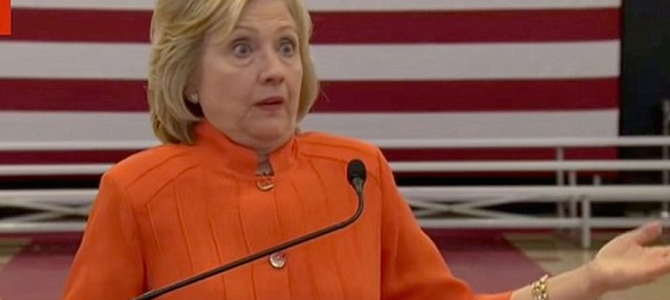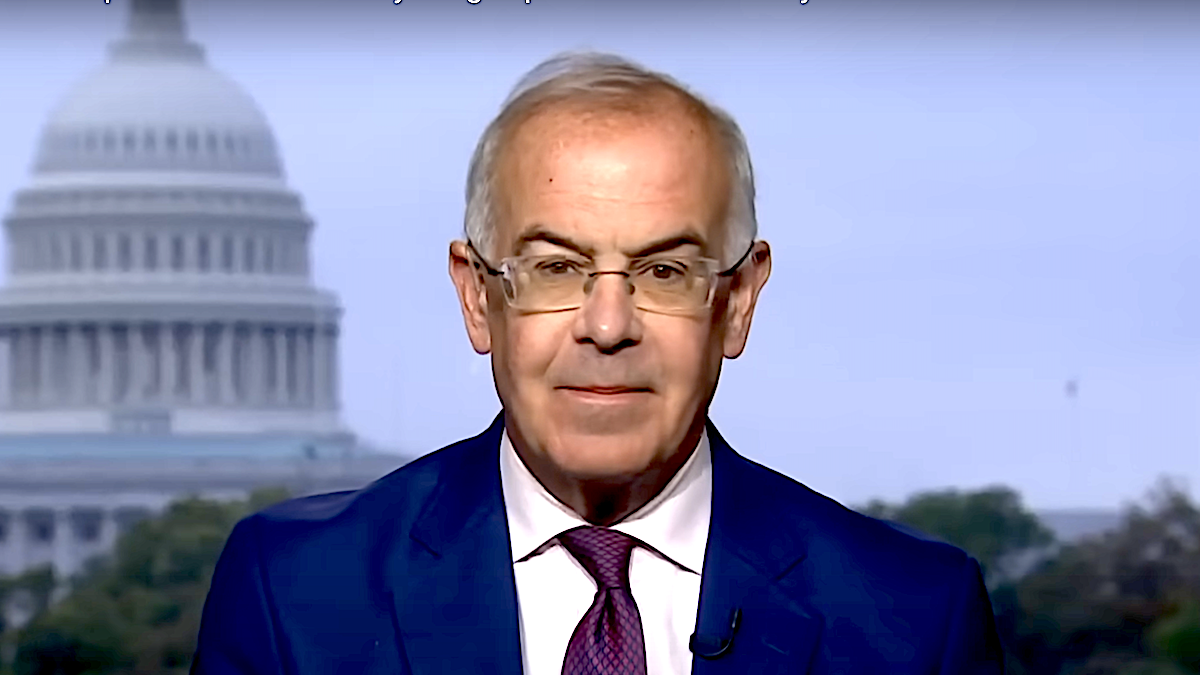
Earlier this year the FBI recommended bringing felony charges against former CIA Director David Petraeus for mishandling classified information. Petraeus was accused of passing classified documents to his mistress and biographer, Paula Broadwell. Petraeus later pled guilty to unauthorized removal and retention of classified information, accepted two years’ probation and a $100,000 fine.
In 2005 Sandy Berger, former National Security Advisor to Bill Clinton, pled guilty to the same offense. He was being investigated for removing classified documents from the National Archives in the course of his research prior to testifying before the 9/11 Commission. Berger was fined $50,000, stripped of his security clearance for three years, given two years’ probation, and lost his law license.
Details are still emerging and the full picture is unclear, yet it seems increasingly clear that Hillary Clinton committed a similar offense in the course of her tenure as Secretary of State.
Understanding Clinton’s Email Debacle
To understand what Clinton may have done wrong, you have to understand that government officials with security clearances typically have multiple computer systems and emails accounts—one system for handling unclassified material (or “For Official Use Only” (FOUO) material); one for material classified “secret;” and one for material classified “top secret.” Three separate computers and three separate email accounts.
Clinton reportedly set up a private, non-governmental server to handle her unclassified correspondence. That, by itself, probably violates a minor regulation against passing FOUO material through a personal computer—the sort of regulation observed more in the breach, though Clinton’s industrial-scale violation is highly unusual.
The arrangement certainly showed poor judgment: she reportedly used no precautions to encrypt her emails or her server to protect it against foreign intelligence agencies or private hackers. Even though the material was, supposedly, unclassified, it can still be valuable to others.
Clinton’s more serious potential offense has to do with her passing secret or top-secret information over her unclassified system. The fact that the unclassified system was unencrypted and non-governmental only compounds the possible consequences.
The Office of the Director of National Intelligence’s (ODNI) Inspector General, I. Charles McCullough, reviewed a small sample of Clinton’s email correspondence passed over the unclassified system. He reportedly found “secret” information in at least four of them and “top secret” information in two of them. It is unclear if Clinton merely received the information from someone else, or sent the emails herself—but Clinton’s practice of using her private server for government correspondence is to blame for encouraging a culture of lax security standards during her tenure at State. Clinton has handed over her server for a broader review.
The Clinton Campaign’s Flimsy Defense
The Clinton campaign released a statement defending Clinton that argued “No information in her emails was marked classified at the time she sent or received them.” This is a non-defense. Just because the information was not marked as classified does not mean it did not contain classified information; it could mean the information was incorrectly marked—which is what the inspector general concluded was the case with at least two emails.
The statement goes on, and only becomes more confusing. “It’s common for information previously considered unclassified to be upgraded to classified before being publicly released.” First, it isn’t common for information to be upgraded. It is more common for information to be downgraded—in fact, there is a mandatory declassification requirement for most classified records after a set period of time. Second, information certainly isn’t upgraded “before being publicly released” because we don’t publicly release classified information.
The campaign’s defense goes on in this vein. “Some emails that weren’t secret at the time she sent or received them might be secret now.” This claim was explicitly contradicted by the inspectors general of both the State Department and the intelligence community, who wrote that “These emails were not retroactively classified by the State Department; rather, these emails contained classified information when they were generated and, according to IC classification officials, that information remains classified today. This classified information should never have been transmitted via an unclassified personal system.”
The only reason the emails might be marked secret after having been sent is if they were incorrectly marked unclassified in the first place because of the nature of the information in them. In other words, if Clinton’s emails are being retroactively classified, that is less a defense of Clinton than an admission that she improperly handled classified information; passed secret and top-secret information over an unclassified system; and either did not know how to make a distinction between unclassified and classified information, or was unwilling to bother with it.
Clinton Should Be Held To A Higher Standard
To be fair, it can be difficult for government officials, in the midst of a hectic work tempo, juggling three computer systems, to remember which information belongs on which system. It can be difficult to remember the classification of different bits of data in your brain.
There are a large number of rules about how to handle different kinds of information that are, frankly, difficult to keep perfectly. I have had a top-secret security clearance for fifteen years. I take this stuff seriously. Yet I was once written up for a (self-reported) failure to properly package classified information I was couriering from one location to another.
But Clinton’s practice is different. She was operating at the very highest levels of government. Like Petraeus and Berger, she should be held to a higher standard. Additionally, Clinton’s use of a personal server was not a one-time accident but a deliberate policy sustained over four years. The sensitive information contained in Clinton’s emails reportedly includes signals intelligence from reconnaissance satellites—not the sort of thing that is easily mistaken for unclassified information. And Clinton is running for the position of command-in-chief at a time when we are losing an undeclared cyber war with China.
If the Director of the CIA and the National Security Advisor can be held accountable for their mishandling of classified information, so too should a Secretary of State. Much more so should the next president not only understand the importance of protecting sensitive information; he or she must make it a priority to enforce such practices across the government. The inspectors general have referred Clinton’s emails to the Department of Justice—not for a criminal investigation, as initially reported, but, even worse, for a counterintelligence investigation.









